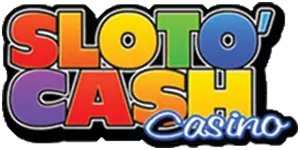No Call Bets Rule
Craps is a game with simple playing rules, yet gamblers are expected to adhere to a long list of unwritten principles of etiquette while at the table. In fact, the elaborate etiquette is one of the main reasons why the average rookie approaches the craps pit with diffidence and trepidation.
Some of these etiquette rules concern the patrons’ behavior towards fellow players and casino personnel, while others are directly related to security and the workings of the game, such as knowing when to place a bet, how to handle the dice properly, and so on. Some wager types in craps, like the Come Bet, may be unavailable during certain stages of the game; others are always active and, therefore, permitted.
-
 Sign Up Bonus
Sign Up Bonus
Up to $3500
350% Bonus!9.7 -
 Sign Up Bonus
Sign Up Bonus
Up to $500
400% Bonus!9.4 -
 Sign Up Bonus
Sign Up Bonus
Up to $2000
200% Bonus!9.3
Yet, as elaborate as the craps table etiquette is, it too has undergone various modifications. Back in the day, when the popularity of the game was at its height, patrons were allowed to call out their bets, similar to players at the roulette table. Call bets have almost become obsolete now, although you may still be able to find them at the craps tables in some casinos. So what are craps call bets, and why have most gambling venues prohibited them? Stick with us to learn the answers to these questions.
Adhering to particular rules at the craps table, as in all other casino games, is essential. Therefore, we will examine the No Call Bets Rule of some craps tables and why it is important to have sufficient chips to cover your bets. We will also outline some of the most common rules pertaining to etiquette and security at the craps table. Once you are familiar with these guidelines, you will be able to join the craps tables calmly and confidently.
Call Betting in Craps
Way back when craps ruled the casino floors, you would often see a player hastily approaching the table and shouting, “Ten dollars on the Field!” at the dealer. The player would not place any chips in the Field betting box on the layout, but the stickman would still accept their wager.
If one of the Field numbers had shown and the outcome had been resolved, the player who had called out the winning Field bet would be paid in accordance with the odds offered by the house for this wager. Calling out wagers provided late arrivals at the table with the opportunity to bet on given outcomes without actually producing any chips to back their call bets.
So, in essence, call bets are wagers declared only verbally, without the patron producing the appropriate amount of chips to cover the bet. The reasons why calling out your craps bets has become almost obsolete these days are listed in the next section, although some gambling establishments still allow this practice for loyal patrons they are certain will pay if they lose.
Some seasoned players resort to call betting when they have missed their turn to make a bet while ordering a drink or arranging their chips on the rail. Others do it during a long session when they run out of chips to play with. Other than that, there are no good reasons for a player to call out their bets. That being said, call bettors are also required to adhere to certain etiquette rules when allowed to call out their wagers.
Common courtesy (along with the superstitions this game is veiled in) prevents you from calling out a bet if the stickman has already pushed the dice toward the shooter. The same applies if the shooter is already holding the dice and is about to throw them.
Why Do Casinos Enforce the No Call Bet Rule for Craps?
In modern casinos, there is a good chance you will see the phrase “No Call Bets” printed on the layout when you approach the craps table. Let’s consider the following hypothetical situation for a moment. You have played for an extended period of time and have run out of money but are still reluctant to end your session.
You fish out a $5 chip from your pocket but want to wager $10 on the 8, so you toss the $5 chip on the layout and address the base dealer with “Place 8 for $10”. The dealer responds with “No call bets, sir” and pushes the chip back toward you. You consider whether to call the pit boss and make a fuss about the dealer’s refusal, then cast a sidelong glance at the table and see that the layout says “No Call Bets Accepted”.
In other words, you are prohibited from calling out any bets if you do not have enough money to cover them. The base dealer is required to ensure you have sufficient cash or chips before they proceed to book the wager.
If the bet wins, they would collect their payout and leave the pit without drawing further attention to themselves. If the bet loses, the table personnel would demand the crook contribute the amount they called out. But since the unscrupulous player was practically penniless when they joined the game, they would not be able to produce the sum. They would be thrown out without any repercussions other than stern reprimands from the staff.
If you have plenty of chips sitting in front of you, you can call out a bet even if the dice are in the air. The dealer will book your action and the money will switch hands as soon as the dice land and determine the outcome of the roll. That being said, it is common courtesy not to make your bets after the shooter has the dice or is just about to throw them.
Another reason why calling out bets is prohibited is to avoid confusion about the amounts you wager. A cunning player may toss a red (i.e., a $5 chip) on the layout right before the shooter throws the dice and call out “Place the 8 for a nickel”. This might confuse the dealer because, contrary to common sense, chips with a denomination of $500 are called “nickels” in gambling slang. With so much action at the busy craps table, the dealer might misinterpret your announcement and presume you are betting $500 instead of $5 because they cannot clearly see the chips you tossed.
That being said, many dealers will accept wagers placed at the very last moment before the dice are rolled, because they do not want to slow down the fast-paced action inherent to craps tables.
For example, if you put a $10 chip on the layout and address the dealer with “Place 8 for $5” they will announce “It’s a bet!” and give you back your change of $5 before the shooter rolls the dice. However, if you have not clearly stated what you are betting on, the table personnel have the right to decline your chips.
Common Rules Related to Etiquette and Security at the Craps Table
Many seasoned craps players consider table etiquette just as important as the game’s actual rules of play. Rookies are usually expected to come well prepared and follow the rules of etiquette to the letter in order to prevent misunderstandings, annoyance on the part of experienced bettors, and other disruptions in the natural flow of the game.
Compliance with the rules is a must whether you are calling your bets (if allowed) or not. In the sections to follow, we outline some of the most widespread rules pertaining to security and etiquette at the craps tables. Some of these guidelines have to do with the superstitions of craps players; others stem from common courtesy.
Joining a Craps Table
Rookie players should remember they are not necessarily required to buy in as soon as they join the craps table. You are allowed to take a position at the table and simply observe the game before buying in, especially if the shooter has received the dice and is about to roll.
The ideal moment to buy in is when there is a natural pause in the action after the shooter sevens out and the dice are about to be passed to another player. This way, you will not disturb fellow participants. If you throw money on the table when the shooter is about to roll, you risk messing up the chips the dealers have arranged on the layout. Players who buy in while the dice are mid-roll are looked down upon by most craps bettors because… well, because they believe it brings bad luck, as nonsensical as it sounds.
Some casinos allow loyal patrons to call out their bets, but you should never do this before buying in. Sometimes an approaching person will call out a bet before they have actually reached the table. Such tactics are not only considered incredibly rude but often cause heated allegations that the offender has ruined the winning chances of the entire table. Some people are superstitious enough to quit the game altogether if this happens.
One of the most essential rules is to always watch your hands, keeping them off the table when the dice are rolled. If the dice come into contact with your hands or anyone else’s, they are “jinxed” and may not produce the desired result. The stickman would often issue a warning for players to watch their hands by yelling “Hands high, let them fly” or something similar.
How to Behave While at the Table
It is important to demonstrate graciousness and good manners while at the craps table, no matter whether you are winning or losing. Remember, it is neither the crew’s nor the other players’ fault that you have lost, as losing is inherent to games of chance like craps and may happen to anyone. So do not be too cross with the table personnel and other participants after losing a couple of rolls.
Casinos often woo patrons by offering them food and beverages on the house. Of course, you can take a complimentary drink with you while at the craps table; just make sure to place it on the beverage rail under the table, keeping it off the layout. Spilling your drink may affect the odds of the game since the dice behave differently when rolled on a wet baize. Spills may not only slow down the game but can lead to the temporary closure of the entire craps table.
One last thing, which has undoubtedly been said earlier in the guide, but it bears repeating. Under no circumstances should you utter the word “seven” at a craps table. In craps, 7 is the “number which must not be named” because it causes Pass Line bettors to lose if it rolls before the point. Craps players usually refer to it as “it” “the S-word” “the Big Red” or “the Devil” out of superstition.
Placing Self-Service Bets
As explained in previous articles from this guide, some wagers, such as Pass Line/Don’t Pass, Come/Don’t Come, and the Field, are called self-service bets because players are permitted to position the chips on the layout themselves.
However, it is worth keeping in mind that some of these wagers are contract bets (in particular, the Pass Line and the Come), meaning that players are prohibited from taking their chips off the table before the outcome is resolved (something that often involves multiple rolls of the dice).
Then again, mistakes do happen at a crowded table, and sometimes a base dealer may mispay or skip a winner altogether, especially with some side bets. Be sure to correct the mistake or request your payout if you were overlooked.
How to Handle No Self-Service Bets
Some of the most exciting and risky wagers in craps are not self-service bets, which is to say that only members of the table crew (in particular, the stickman and the boxman) can handle the chips for them.
These bets are posted by the crew once players place their chips on the layout. Dealers and stickmen cannot read your mind, so be sure to state clearly what type of wager you intend to place. The bet is then repeated verbally as confirmation to prevent mistakes, so be sure to communicate with the table personnel instead of blindly tossing chips on the layout.
Shooting the Dice
Craps players take turns clockwise when shooting the dice, but it is alright for you to decline shooting when your turn comes. No one but the shooter is allowed to touch the dice or hold them, not even the stickman, who moves them around the table with an elongated, crooked stick, also known as “a mop” or “a whip”. The dice should never leave the table, either, as a precaution against cheating.
It is for this reason shooters are not permitted to use both hands when handling the dice. If you want to switch hands, you must first leave the dice on the table and then pick them up with your other hand. The dice must be in full view at all times.
Also, the dice should be thrown in a specific manner for the roll to be considered valid, as this ensures the randomness of the game. Your goal is to toss them so that they hit and bounce off the back wall of the table. Some establishments prohibit shooters from tossing the dice above eye level.
Be careful not to throw the dice off the table, as this would require introducing a new pair into play. And yes, you guessed it – this is also considered a bad sign, with some gamblers vehemently insisting that the thrown-out dice remain in play to avoid jinxing the table. Another thing you must try to avoid as a shooter is sloppiness. The dice should not mess up the stacks of chips on the layout.
As you can see, craps players are, as a rule, a rather superstitious lot, and many of them perform little rituals before they shoot the dice. Some people go as far as praying before rolling. It is alright for you to perform your own ritual before you shoot, if you think this helps, as long as you do not cause any delays in the action.
Tipping the Craps Table Personnel
You might be surprised, but casino table employees are often overworked in exchange for a relatively small salary. Many of these people generate a large portion of their yearly income by graciously accepting tips from patrons. Now, nobody likes a tightwad, so it is recommended to tip the craps dealers once in a while, especially if you are on a hot roll. Tipping is frequently referred to as toking in these circles.
There are two accepted ways to extend a modest gratuity for good service, the first one being to hand the dealer the money immediately before you leave the table. If you go for this option, make sure you verbally indicate it is a tip.
Your other option is to make a bet for the dealer. This is usually done by making a two-way parlay on long-shot wagers like the Big 6 and the Big 8. Some patrons prefer to toke the dealers by making two-way bets on long-shot propositions like the Yo, but many dealers fail to appreciate the gesture because such wagers have very little chance of winning. Dealers themselves prefer it when you place low-house-edge bets for them, such as the Pass Line and the Come bets.
Quitting a Craps Game
It is hardly a surprise that you have to comply with the established etiquette both when joining and when leaving this ritual-ridden game. Similarly to buying in, you must color up your chips and leave the table without interrupting the game’s flow.
The best time to do this is when a natural pause in the action occurs, for instance, when the person shooting the dice has sevened out and the base dealers are collecting the chips of losing players. You should not leave the table without coloring up, i.e., exchanging your small chips for chips of higher denominations. This is also more convenient for you because afterward you will not have to walk around the floor with pockets drooping under the weight of all your small-denomination chips.
If you no longer feel like playing, you can take down your bets and only observe others betting until the natural pause you are waiting for occurs. The dealer will mark the chips you have on the layout with a small disk that reads “off” so you can retrieve them when the pause occurs.


